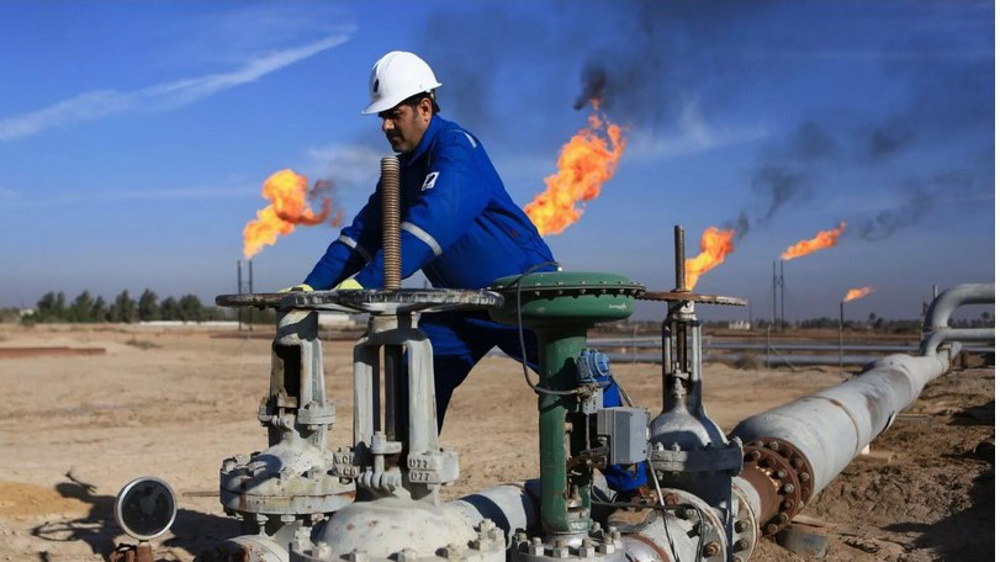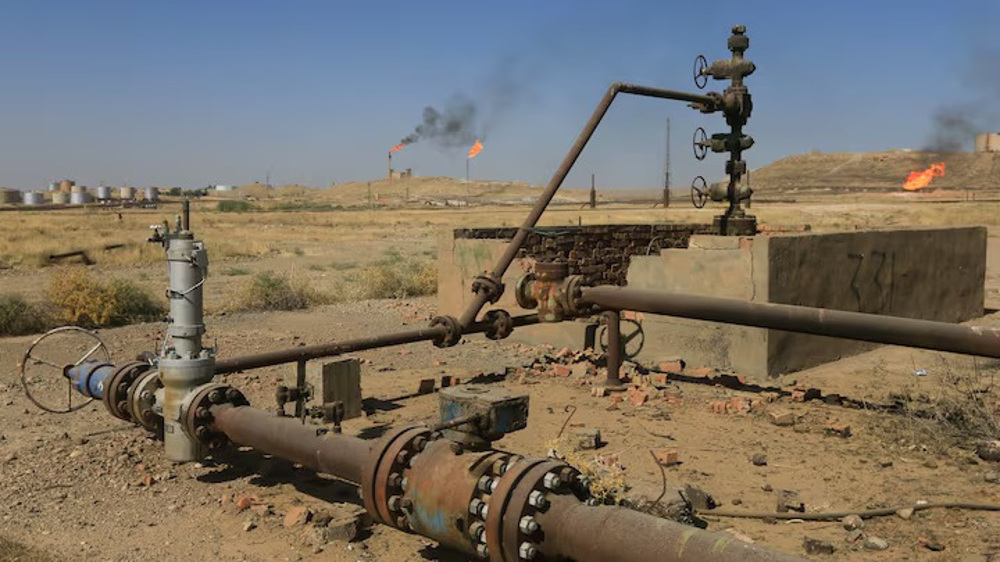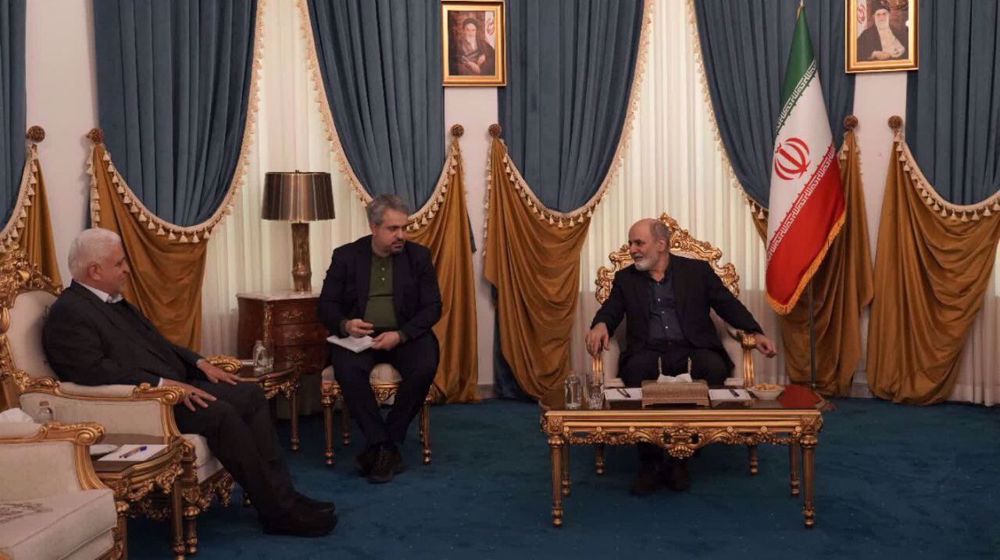Iraqi forces reestablish security in Kirkuk after pushing out Kurds
Thousands of civilians have returned to the Iraqi city of Kirkuk after fleeing as government forces pushed Kurdish militants out of the oil-rich city and established security.
Residents headed back along a main highway to the city's east on Tuesday with their children and belongings packed in their cars.
Police called on the residents, who had fled in their thousands for fear of a potential armed confrontation, to return, giving assurances that the situation is stable.
The city is now under a night-time curfew.
In a televised address, Iraqi President Fuad Masum said troops had no choice but to take over the administration of Kirkuk after Kurdish authorities held a referendum for independence last month.
Masum, himself a Kurd, said the independence vote "provoked dangerous disputes" between Baghdad and Irbil, the capital of Iraq's Kurdish autonomous region.
Prime Minister Haider al-Abadi also said the Kurdish referendum "is finished and has become a thing of the past."
Addressing a news conference in Baghdad, Abadi called for dialog with Kurdish authorities to resolve the dispute "under the Constitution."
Government buildings, oil fields retaken
Iraq’s Alforat news agency also said army forces were now in control of all of the city’s government buildings, state-owned North Oil and North Gas companies, the Kirkuk International Airport, and K-1 Airbase.
Cited by Reuters, an Iraqi army officer said government forces had also taken control of all oilfields operated by the North Oil Company in the province.
Government troops have also reopened the highway linking the Kirkuk City and the capital Baghdad, Iraq’s al-Sumariyah television network reported.
Kurdish forces have been holding parts of Iraqi territory since 2014, when Daesh began an offensive across Iraq and the Kurds began fighting it and overrunning territory in the process.
The Baghdad government has long insisted that the Kurds pull out of the territories they had overrun. But the Kurdish militants have refused. Ever since a controversial referendum on secession in Iraqi Kurdistan on September 25, the Iraqi government has lost patience, sending security forces to retake Kurdish-held areas.

Baghdad also ordered the Kurdistan region to swiftly hand over its border crossings and airports. The region refused and later sent thousands of Peshmerga and other militants to Kirkuk Province, which it has been claiming in its entirety for long.
Prime Minister Haider al-Abadi has ordered that national flags be hoisted on public buildings in all of Kirkuk’s neighborhoods.
Crowds on the streets of Kirkuk’s southern outskirts welcomed army forces as they entered the city.
The Peshmerga have called the takeover “a flagrant declaration of war” and vowed that Iraq will pay a “heavy price.”
Kurds retreat before Iraqi forces start op. near Iran border
Meanwhile, Kurdish Peshmerga forces pulled out from the area of Khanaqin, on the border with Iran, as Iraqi forces prepared to take over their positions, security sources said.
A small oil field, Khana, is located in the area.
Iraqi forces take control of Sinjar, other towns
Meanwhile, Iraqi army and Hashd al-Sha’bi forces have taken control of the city of Sinjar in Nineveh Province following a pullout by Kurdish militants.
Government forces took control of all of Sinjar on Tuesday after the withdrawal a day earlier of Kurdish Peshmerga militants.
The Peshmerga militants also left the towns of Bashiqa and Bahzani in Nineveh.
Kurds clash with police in London
Separately, Kurdish separatists have clashed with police in front of Iraq’s Embassy in London.
Iraq’s Foreign Ministry reacted by saying that the protesters had engaged in “criminal” activity and demanding that the UK investigate them.
‘Iran closes Kurdistan border crossing’
Following the referendum, Iraq demanded neighbors Iran and Turkey to close their respective borders with Kurdistan.
Iran closed its airspace with Iraqi Kurdistan at the time, and on Monday, Faramarz Akbari, the governor of Qasr-e-Shirin, said Iran had since a day earlier temporarily closed its Parviz Khan Border Crossing in Kermanshah Province, which borders Iraq's Kurdistan.
He said it would likely remain closed until Iraqi security forces replace the Kurdish militants on the borders.
This is the first time an Iranian official has confirmed the closure of a land border with Iraq's Kurdish region.
Israeli jets flyby over Nasrallah funeral ‘act of terror’: Iran FM
IRGC: Nasrallah funeral ‘global resonance of resistance’; Hezbollah resolute to dismantle Israel
VIDEO | Pakistanis attend mass funeral for martyred Hezbollah leaders
Hamas condemns escalation as Israel deploys tanks into West Bank for first time in decades
Iran Army’s hovercrafts fitted with advanced long-range missiles: Navy chief
VIDEO | Pro-Palestine protesters in Madrid call for end to Israeli crimes
VIDEO | Tehran commemorates martyred Hezbollah leader
VIDEO | Press TV's news headlines













 This makes it easy to access the Press TV website
This makes it easy to access the Press TV website